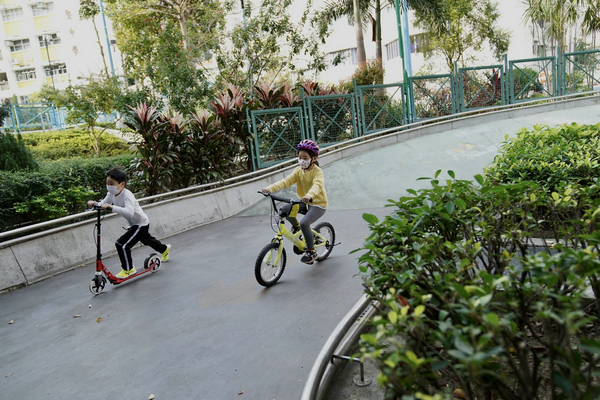 |
|
Children wearing masks play in an amusement park in Hong Kong on March 10. [Photo/Xinhua] |
Changes in fashion
Fashion is the spirit of the times, says Katalin Medvedev, an international dress and fashion scholar from the University of Georgia.
"Fashion mirrors what's going on," she says. "People now need comfort the most… anything that is simple, predictable and consoling.
"Hard times have always changed people's attitudes to fashion. This was the case during the Great Depression when consumption slowed down, or during World War II when people started to make do and mend. In the last recession people started to buy safe things, timeless and durable pieces," reflects Medvedev.
Charles Benight, a psychology professor at the University of Colorado, is a specialist studying how people recover from disasters. Coronavirus brings the kind of uncertainty and ambiguity that feeds fear and anxiety, he notes. Human resilience comes from the senses-we see, smell, hear and feel, to gauge what's happening, says Benight.
"Until we figure out a long-term way to manage the crisis, some people will be more on edge and more vigilant. Their behavior will change, concentrating on keeping one's family and oneself safe."
When calamity strikes, people get back to life's basics, the things that are really important. The closure of businesses affecting millions, the sudden loss of a job or income, and the trauma of knowing the virus is still out there haunt people. People don't know when, or if, life will return to "normal".
There are varied definitions of "self" in different contexts, says Chen Zhansheng, associate professor of psychology at the University of Hong Kong. Everyone has a different "self"-as an individual, as a family member, and when we network under social circumstances.
"But with the social distancing, the third 'self' becomes less relevant. Then, we naturally dedicate more time and energy to the first two selves," explains Chen.
As we reallocate our attention to our inner self and family, we will ask ourselves, "who am I", and "what role do I play", says Chen, adding that these are the most basic questions we seek to answer in life.
When a crisis sets in, our instinct prompts us to find a shelter, in order to restore a sense of safety and emotional balance, notes Chen.
"That's a built-in coping mechanism," he says. "At this point, we tend to identify ourselves and our family as the safest shelters, or 'nest' or 'den' as we call it. It offers a break space for us to get away from the threatening situation."
Yip also finds himself "returning to basics".
While Yip says he would meditate on life before the pandemic, "It's the pandemic that reinforced my perception that life is simple and doesn't have to be opulent. The pandemic brings some basics in life back to the surface. It motivates me to get rid of some complexities, to collect my thoughts and to embrace simplicity."
Lifestyle change also manifests in people's travel patterns.